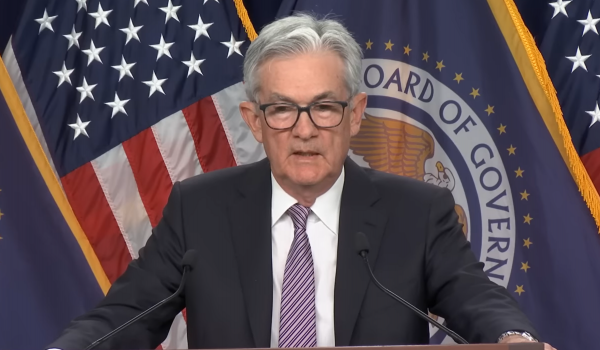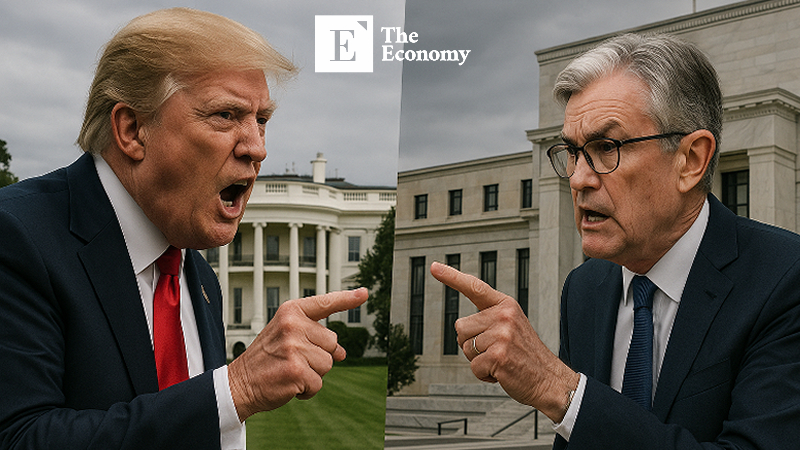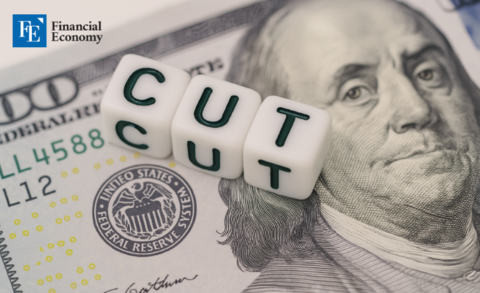Wall Street Economist El-Erian: "Powell Should Resign to Protect Fed's Independence"
Input
Modified
Rare calls emerge on Wall Street for Fed Chair Jerome Powell to resign Fed's independence seen as increasingly vulnerable under pressure from a potential Trump administration Concerns grow that Powell's dismissal could spark deeper turmoil in financial markets

Calls are emerging on Wall Street for Federal Reserve Chair Jerome Powell to resign in order to safeguard the central bank’s independence. As former President Donald Trump intensifies his broad attacks on Powell—citing issues such as the Federal Reserve’s building renovations—concerns are growing in financial markets, with some voices now suggesting that stepping down may be the best way to protect the institution.
El-Erian Sparks Debate with Resignation Proposal
On July 22(local time), Mohamed El-Erian—President of Queens’ College at the University of Cambridge and advisor to Allianz Group—argued in a post on X (formerly Twitter) that Federal Reserve Chair Jerome Powell should step down if his goal is to defend the institution’s operational autonomy, which El-Erian called “essential.” A former CEO of bond giant PIMCO, El-Erian is widely regarded as one of the most influential economists on Wall Street.
“I understand that my view runs counter to the prevailing opinion that Powell should remain in office through his term ending in May next year, and I’m not suggesting it’s the ideal option,” El-Erian wrote. “But it may still be better than the current situation, where threats to the Fed’s independence are growing and spreading.” His remarks are being interpreted as a call for Powell to voluntarily resign in the face of escalating pressure from the Trump campaign, which has repeatedly demanded aggressive rate cuts and taken aim at Powell personally.
El-Erian also noted that market reactions may remain stable, saying that most of the frequently mentioned candidates to succeed Powell are capable of reassuring investors. Current contenders include former Fed Governor Kevin Warsh, former White House economic advisor Kevin Hassett, Treasury Secretary Scott Besent, former World Bank President David Malpass, and current Fed Governor Christopher Waller.

White House Increases Pressure on Powell Amid Renovation Controversy
The sudden emergence of resignation calls—even within pro-Powell circles on Wall Street—has been largely attributed to a growing controversy over the Federal Reserve’s expensive building renovation. On July 10, Russell Vought, Director of the White House Office of Management and Budget (OMB), sent a letter of protest to Powell, accusing the Fed of potentially violating federal regulations by spending excessively on its headquarters remodeling.
According to the White House and some Republican lawmakers, the total cost of the renovation ballooned by $700 million to $2.5 billion, due to additions such as a rooftop garden, artificial waterfalls, VIP elevators, and marble interiors. Vought also claimed that the Fed failed to report the budget overruns and related changes to the National Capital Planning Commission (NCPC), a federal oversight body.
Analysts say the White House may be using the scandal as a pretext to justify Powell’s dismissal. “The Federal Reserve Act protects the central bank’s independence by prohibiting the president from removing board members without cause,” said one market analyst. “However, if allegations of misconduct or corruption arise, dismissal before the end of a term becomes legally possible.” The analyst added, “This appears to be a trap set by the Trump campaign to undermine Powell. Rather than allow continued erosion of the Fed’s authority, Powell’s resignation could send a stronger signal in defense of institutional integrity.”
According to media reports, former President Donald Trump shared a draft letter outlining Powell’s dismissal with Republican lawmakers during a private meeting at the Oval Office on July 15. During the informal session, Trump is said to have openly expressed his dissatisfaction with Powell and sought attendees’ opinions on whether he should move forward with the termination.
Market Turmoil Follows Powell Ouster Rumors
Despite growing speculation, some analysts believe it remains unlikely that former President Trump will actually proceed with removing Jerome Powell. Replacing the Fed Chair is seen as an extreme move that could trigger significant disruption across U.S. financial markets. Indeed, on July 16—following reports that Trump had actively discussed Powell’s dismissal—U.S. equities, the dollar, and long-term Treasury bond prices all fell sharply (with corresponding spikes in yields), while short-term Treasury prices rose, sending yields downward. The reaction reflected broad and immediate shock across markets.
In the wake of the backlash, Trump quickly denied that he was planning to fire Powell. On July 22, Treasury Secretary Scott Besent also sought to calm speculation, telling Fox Business Network that “there is no reason for him [Powell] to step down right now,” and that “his term runs through next May, and if he wants to finish it, I think he should.” The statement sharply contrasted with Trump’s previous stance advocating for Powell’s early removal.
Markets interpreted Besent’s remarks as a signal of respect for the Fed’s independence. In response, yields on 10-year U.S. Treasury bonds retreated to the low 4.3% range, and the dollar weakened in global foreign exchange markets. The U.S. Dollar Index (DXY) dropped to as low as 97.303—the lowest level since July 10—leading to declines in the dollar’s value against other major currencies, including the Korean won, euro, yen, and Chinese yuan.





















